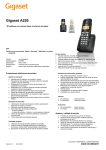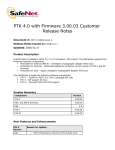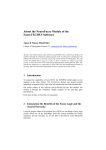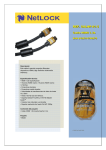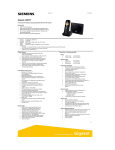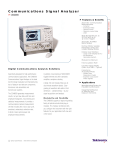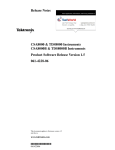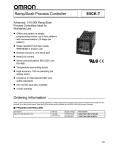Download certificate
Transcript
CERTIFICATE HUNGUARD Számítástechnikai-, informatikai kutató-fejlesztő és általános szolgáltató Kft. on the basis of the decree 15/2001.(VIII. 27.) MeHVM , as a designated product certification organization by the 002/2004 designation document of the Minister of Information and Telecommunication of the Hungarian Republic certifies that ProtectServer Orange (former name CSA8000 Adapter) hardware version: G revision, Cprov firmware version:1.10 electronic signature product manufactured and sold by Eracom Technologies Group, Eracom Technologies Australia, Pty. Ltd in the case of the realization of all conditions in Annex 1. is suitable for the secure operation of a qualified certification service provider who provides the following services: Within the scope of electronic signature certification service: Generating, storing (qualified) certificate signing keys, signing, saving and recovering (qualified) certificates; Within the scope of time stamping service: Generating, storing timestamp signing keys, signing timestamp; Within the scope of placement of signature creation data in a signature creation device service: Generating subscriber (signing) key pair; Within the scope of secure operation of the qualified certification service provider’s own information system: Generating, storing and using infrastructural and reliable management keys. This certificate was released on the basis of the evaluation report HUNG-TJ-028-2005. This certificate was released at the request of Netlock Ltd. Registration number: HUNG-T-028/2005. Date of the certification: 30 December 2005 Validity of this certification beside yearly revision: 30 December 2008 Annexes: conditions, requirements, documents in 6 pages. SEAL Certification Director: Managing director HUNG-T-028/2005 Annex 1. Validity conditions of the certificate CSA 8000 adapter is a sophisticated cryptographic device that was designed for general usage and to satisfy the wide range of user demands. Accordingly many security attributes can be configured in the device. Operation in FIPS 140-1 mode (which places on security instead of efficiency and userfriendly operation) demands many configuration settings, and complying with these settings are the main conditions of validity. If the CSA 8000 adapter is used by a qualified certification service provider for its security critical activities (to sign the issued certificates and timestamp responses) it has to comply with further requirements which limit the usability demanding more complementary conditions to be met. Hereunder we summarize the conditions that collectively form the basis of this certificate’s validity. I. General validity conditions The following conditions are necessary for every utilization modes (the whole general utilization scope designed by the manufacturer) for reliable and secure operation. 1. Those persons who have different roles in connection with the services of CSA 8000 adapter (Admin, Admin Security Officer, Token Security Officer, Token User): • are competent, qualified and reliable; • keep the mandatory activities defined by different guides (CSA8000 Adapter Installation Guide, Cprov Installation Guide, Cprov Administration Manual, Cprov Key Management Utility User Manual). II. Validity conditions arising from FIPS 140-1 conformity The following conditions are essential for the CSA 8000 adapter to meet FIPS 140-1 Level 3 requirements. 2. Cryptographic functionality in connection with digital signature must be restricted to the following algorithms: DSA, RSA (PKCS #1), SHA-1. -2- HUNG-T-028/2005 3. The following security configurations must be applied: • CKF_ENTRUST_READY (“Entrust Compliant” flag) mandatory value: FALSE • CKF_ALWAYS_SENSITIVE (“No Clear PINs” flag) mandatory value: TRUE (SET) • CKF_AUTH_PROTECTION (“Session Protection” flag) mandatory value: TRUE (SET) • CKF_MODE_LOCKED (“Lock Security Mode” flag) mandatory value: TRUE (SET) • CKF_NO_PUBLIC_CRYPTO (“No Public Cryptography” flag) mandatory value: TRUE (SET) 4. During the set up phase new values must be set for HIMKs and the default HIMK values must be cleared. 5. During the set up phase the Administrator role’s default user name and password must be changed. 6. Operators must keep their PIN number secret. 7. For every new slot configured the PIN numbers must be at least 4 digits. III. Complementary conditions for use in qualified certification service A qualified certification service provider must maintain the following complementary conditions when using the CSA 8000 adapter: 8. Minimal modulus length (MinModLen) must be at least 1020 bit in case of RSA signing algorithm. 9. Minimal p prime length (pMinLen) must be 1024 bit, minimal q prime length must be 160 bit in case of DSA signature algorithm. 10. Only blocks with bit length divisible by 8 can be signed digitally. 11. Those keys which are used to sign qualified certificates are only useable for signing qualified certificates and possibly to sign their certificate revocation lists. -3- HUNG-T-028/2005 12. The module must take care of key protection when a stored key from a secure cryptographic module is exported. Storing sensitive key data in non-secure mode is prohibited. Storing and saving a qualified certificate signing key is only permitted if other additional security mechanisms are used. This can be done using one of the following: • • “m from n” technique (that is not supported by CSA 8000 but it is later achievable through its standard interface) where m is the quantity of those components from the whole n components which are necessary for the successful initialization of the key. For the recovery from error state the m = 60% * n value is proposed (that is if n=3 then m=2, if n=4 then m=3, if n=5 then m=3, and so on). with the following (CSA 8000 supported) methods: • saving to a smart card (token), • it is encoded by 3DES algorithm, • the Key Encryption Key is made from two random components and in compliance with this the simultaneous presence of at least two authorized person is necessary for recovering the private key. 13. Those signing keys that are used for time stamping are only applicable for signing timestamps. 14. In the placement of signature creation data in a signature creation device service if the generation of the subscriber’s signing key pair occurs outside the signature creation device (inside the CSA 8000 cryptographic hardware) it must be assured that signing keys for electronic signature are different from other keys, e.g. keys for encryption. 15. In the placement of signature creation data in a signature creation device service if the generation of the subscriber’s signing key pair occurs outside the signature creation device (inside the CSA 8000 cryptographic hardware) a secure path between the CSA 8000 cryptographic module and the signature creation device must be assured. This path must assure confidentiality, integrity and authenticity by proper cryptographic mechanisms. 16. This certificate is only valid for the current hardware and firmware version /hardware version: G revision, Cprov firmware version:1.10/. Upgrade of a new firmware version is only applicable if the following requirements are realized: • the new firmware version is authenticated by the developer, • the new firmware version was evaluated by an accredited laboratory and a new FIPS certificate was released, • usability of the new firmware version in qualified certification service is certified by a designated native organization, and the new version is included in the secure signing products register of the Hungarian National Communications Authority. IV. Other notes that influence validity 17. Certificates issued by the National Institute of Standards and Technology (NIST) are valid until revocation. So hardware, firmware and software products in the certificates are usable in an unchanged form. -4- HUNG-T-028/2005 18. Those modules which are certified according to FIPS 140-1 are still secure. FIPS 1401 certificates should not be issued after 26 May 2002. 19. Currently there is no information in public sources that may influence the secure operation of the module. Performing this examination is necessary in every 3 years. -5- HUNG-T-028/2005 Annex 2. PRODUCT SUITABILITY REQUIREMENTS Requirements document Act XXXV of 2001 on electronic signature Decree 3/2005. (III.18.) IHM on detailed requirements of services in connection with electronic signature and its service providers Directive 2/2002 (IV.26) MeHVM on security requirements of qualified electronic signature services and its service providers FIPS 140-1: Security Requirements for Cryptographic Modules Derived Test Requirements for FIPS 140-1 ETSI TS 101 456 Policy Requirements for Certification Authorities Issuing Qualified Certificates CEN 14167-1 workgroup agreement: Security Requirements for Trustworthy Systems Managing Certificates for Electronic Signatures -6- HUNG-T-028/2005 Annex 3. Documents considered in the certification Request for the certification Questionnaire for the certification CEN 14167-2 workgroup agreement: Cryptographic Module for CSP Signing Operation – Protection Profile (CMCSO-PP, HSM-PP) CEN 14167-3 workgroup agreement: Cryptographic Module for CSP Key Genaration Services – Protection Profile (CMCKG-PP, HSM-PP) FIPS 140-1 Validation Certificate No. 160 /CSA8000 Cryptographic Adapter/ ERACOM: CSA8000 Cryptographic Adapter, Hardware Revision: G, Firmware Version: 1.1, FIPS 140-1 Non-Proprietary Cryptographic Module Security Policy CSA8000 Adapter Installation Guide /Version: A4, Date: 7 May 2001/ Cprov Installation Guide /Version: 3.0, Revision A6, Last Modified: 7 May 2001/ Cprov Administration Manual /Version: 3.0, Revision A7/ May 2001/ Cprov Key Management Utility User Manual /KMU Version: 3.0 Beta, Revision A1/ May 2001/ Eracom Technologies official notification about name change of CSA 8000 Adapter Frequently Asked Questions for the Cryptographic Module Validation Program -7-







